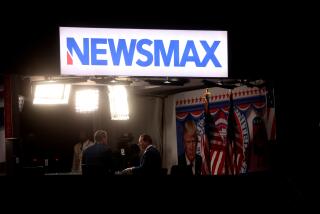Nasdaq to pay $10 million for botching Facebook IPO

- Share via
NEW YORK -- The Nasdaq OMX Group will pay $10 million for botching Facebook’s initial public offering last year, a debacle that shook investors’ confidence in Wall Street.
Nasdaq’s penalty would be the biggest ever paid by an exchange, said the U.S. Securities and Exchange Commission, which faulted the firm’s “poor systems and decision-making” during one of the most-watched IPOs of all time.
“This action against Nasdaq tells the tale of how poorly designed systems and hasty decision-making not only disrupted one of the largest IPOs in history, but produced serious and pervasive violations of fundamental rules governing our markets,” George Canellos, the SEC’s co-director of enforcement, said in a statement.
The SEC, which announced the enforcement action and Nasdaq’s settlement Wednesday, faulted Nasdaq for a series of ill-fated decisions and for violating its own rules. Facebook’s marred IPO shook retail investors’ confidence in Wall Street and called into question the ability of financial firms to control increasingly computerized stock trading.
Nasdaq’s systems had a design flaw that failed to properly match orders to buy and sell Facebook shares on their May 18, 2012, public debut, the SEC said.
Despite the breakdown, Nasdaq’s senior leadership held a “code blue” conference call and decided not to delay trading of Facebook shares on the open stock market, the SEC said.
The stock exchange fixed a “few lines of computer code” but “did not understand the root cause of the problem,” the agency said.
The result: more than 30,000 Facebook orders were stuck in Nasdaq’s system for over two hours, when they should have been immediately executed or canceled, the SEC said.
Nasdaq’s failures spilled over into trading of Zynga shares, and the exchange failed to properly execute 365 orders of that stock, the SEC said.
Among Nasdaq’s violations of its own rules stemmed from a more than 3-million-share short position in -- or bet against -- Facebook stock in an “unauthorized error account.” Nasdaq wound up making a $10.8-million profit from the position, the SEC said.
ALSO:
Quiz: Do U.S. corporations pay too little in taxes?
Dennis Franz lists Montecito estate at $7.65 million
Dads catching up to moms, with Father’s Day sales set to surge
More to Read
Inside the business of entertainment
The Wide Shot brings you news, analysis and insights on everything from streaming wars to production — and what it all means for the future.
You may occasionally receive promotional content from the Los Angeles Times.










